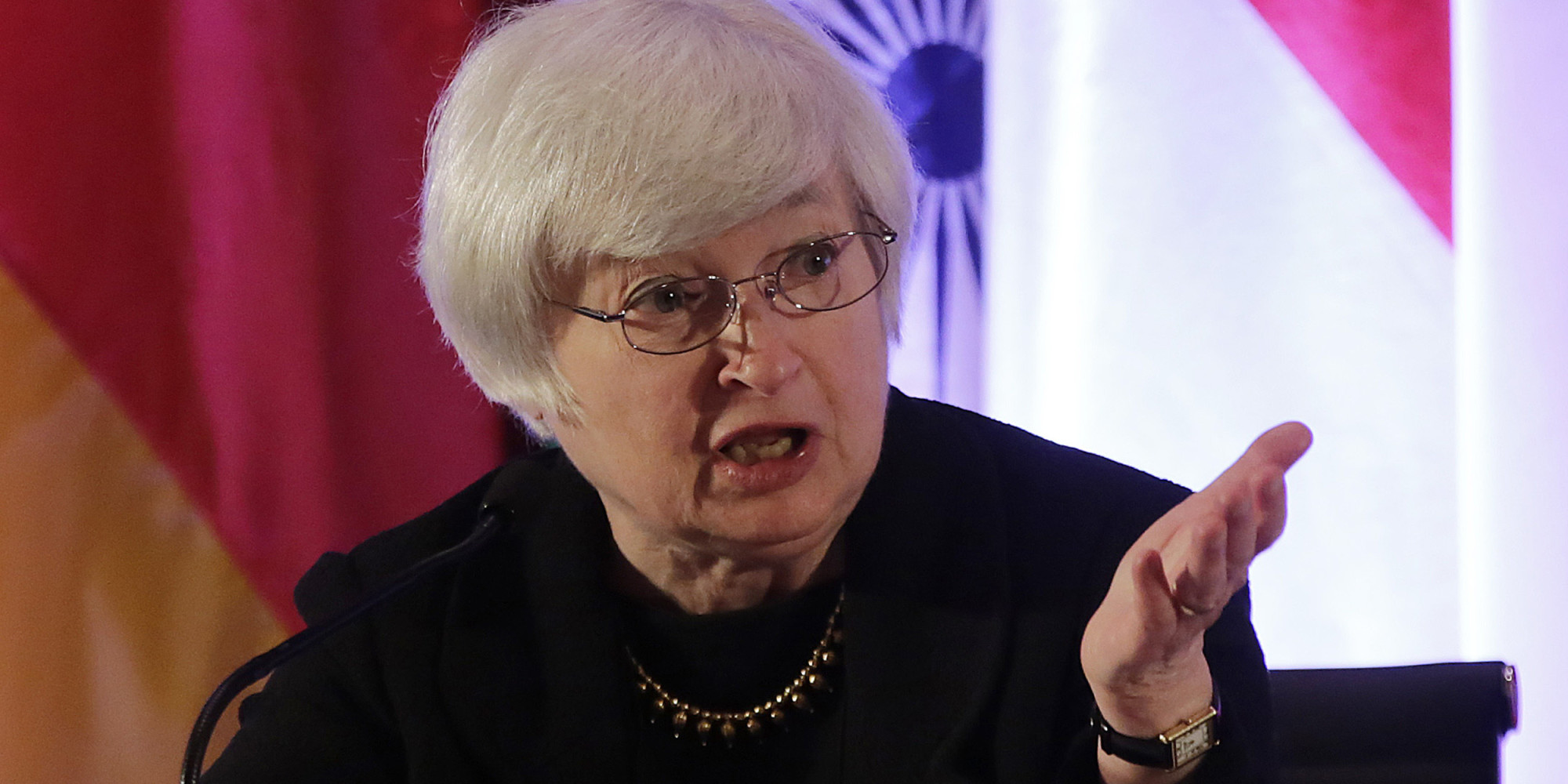I’m a feminist, but no fan of Janet Yellen
written for The Telegraph, 5 February 2014
 I’ve been invited to a feminist drinks party to celebrate Janet Yellen’s signing-in as Chair of the US Federal Reserve. Chair, not Chairwoman, as Dr Yellen is keen to make clear. But, though a feminist, I won’t be knocking back the pina coladas. It’s great to have role models – seeing Margaret Thatcher on the TV taught me as a toddler that it was normal for a woman to run the show. But ordinary American women are more concerned with whether they can afford their daughters’ sneakers than whether a Harvard woman has smashed a glass ceiling – or whether Yale women, like my friends, are throwing soirées to celebrate.
I’ve been invited to a feminist drinks party to celebrate Janet Yellen’s signing-in as Chair of the US Federal Reserve. Chair, not Chairwoman, as Dr Yellen is keen to make clear. But, though a feminist, I won’t be knocking back the pina coladas. It’s great to have role models – seeing Margaret Thatcher on the TV taught me as a toddler that it was normal for a woman to run the show. But ordinary American women are more concerned with whether they can afford their daughters’ sneakers than whether a Harvard woman has smashed a glass ceiling – or whether Yale women, like my friends, are throwing soirées to celebrate.
Celebrating the appointment of every woman, whether or not she’s good for women, makes us look uncritical and tokenistic. And is Yellen likely to ease pressure on the average American household budget? Well, as per Bob Janjuah, a senior figure at Japan’s Nomura Bank, “If Karl Marx was in charge of the world, he’d have Janet Yellen as his central banker governor”. She’s as Keynesian as they get in modern America. And her trademark cause is “consumer rights”, which has usually been code for getting the state to regulate the market. So if you think that tying down American business in acres of red tape is the way to kick-start the economy, then sure, order a round on me.
But what should concern any feminist is a paper Yellen wrote back in 1996, on the increase in illegitimate births in the 20th century. It’s an issue of race, as much as gender – by 1990, 64 per cent of black infants were born out of wedlock, compared to 18 per cent of whites. And let’s be clear: while we should admire single parents who succeed against incredible odds, they are often the first to say that it’s hardly the best option.
Yellen and her co-author, George Akerlof, rightly pin the blame on the Pill, and the emergence of legal abortion. It’s not just the availability of these “technologies”, as Yellen and Akerlof insist on calling them, but their effect on our moral hazard:
Women who were willing to get an abortion or who reliably used contraception no longer found it necessary to condition sexual relations on a promise of marriage in the event of pregnancy. But women found themselves pressured to participate in premarital sexual relations without being able to exact a promise of marriage in case of pregnancy. These women feared, correctly, that if they refused sexual relations, they would risk losing their partners. Sexual activity without commitment was increasingly expected in premarital relationships.
So what’s the answer? I’ve never believed that banning abortion stops women putting their health at risk to find one. But Yellen’s even more pessimistic than I am. Rather than argue that we try to promote marriage, or even (whisper it!) teach women they can still say no, Yellen has one simple solution: the government needs to dole out more welfare to cope with all these unavoidable single mothers.
It’s a patronising response if ever there was one: many of the single mothers (and fathers!) I know hold down tough jobs to support their families – what they need in order to do so is better child care, rather than to get sucked into the benefits trap. America isn’t yet as quick to dole out housing advantages to teenage single mothers, but that’s the leaning of Yellen’s paper. You can blow hot air back and forth forever about whether British teenagers actually chose to get pregnant just to get a council housing – I know that when I lived in close quarters to a brother who left his socks in the kitchen, if getting pregnant was the only way to get out, I can assure you it would have been appealing.
But I had other advantages – and for all the social pressure Yellen notes, I’m mad enough to have chosen not to have sex outside marriage. As a feminist, I value marriage because it protects the rights of women. As Valérie Trierweiler found out to her cost recently, how else does one get a man to commit nowadays? But for Yellen, everything that once was the concern of marriage is instead the concern of the state: “It should be remembered that the proper care and nourishment of children should be the first goal of our society.” Some of us once thought that was the first goal of the family.
I’ve never forgiven Larry Summers, Yellen’s rival for the job, for announcing that female scientists weren’t up to snuff. But even after years of hating him, compared to Yellen I wonder if he might have been the feminist choice.




